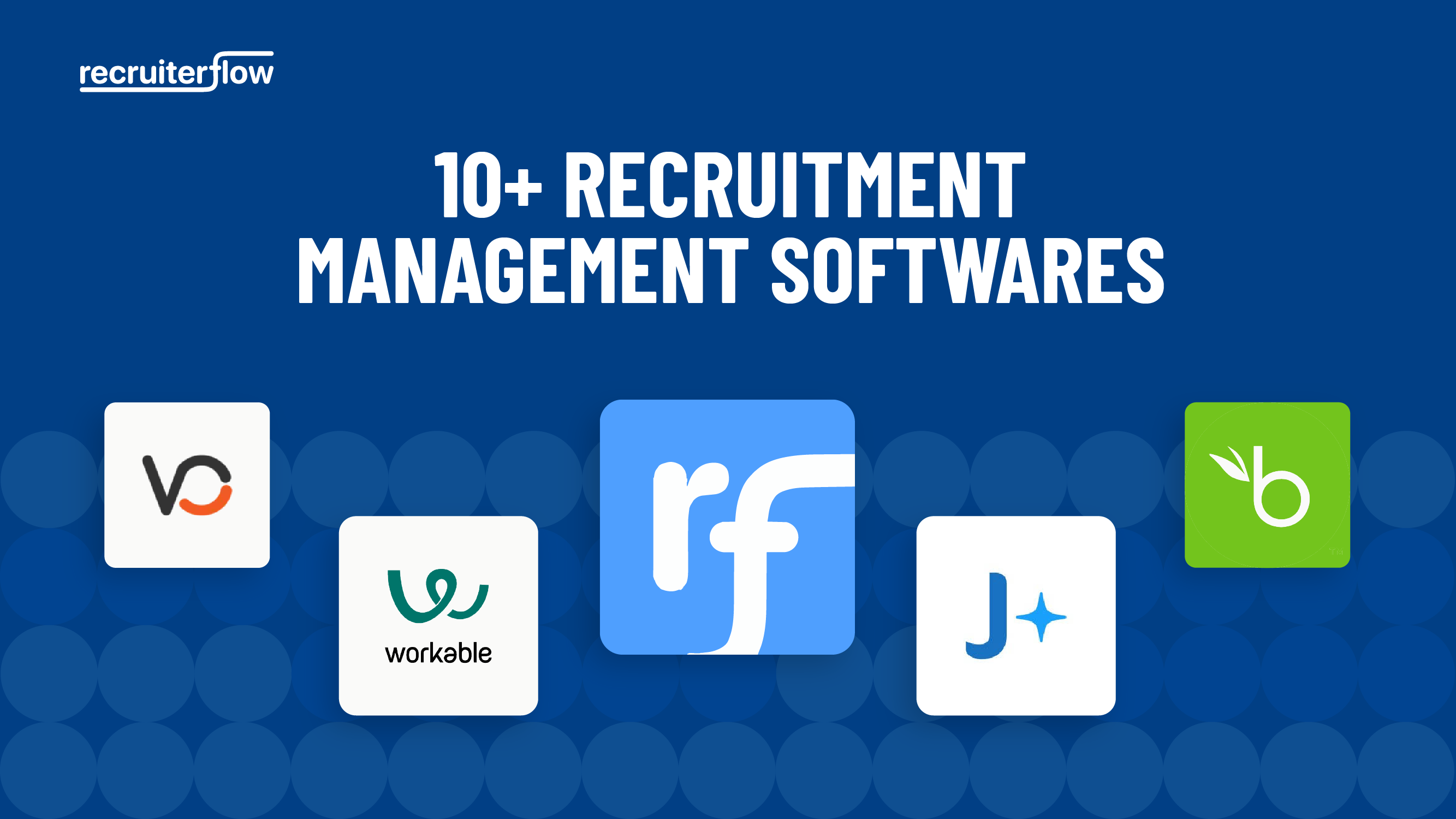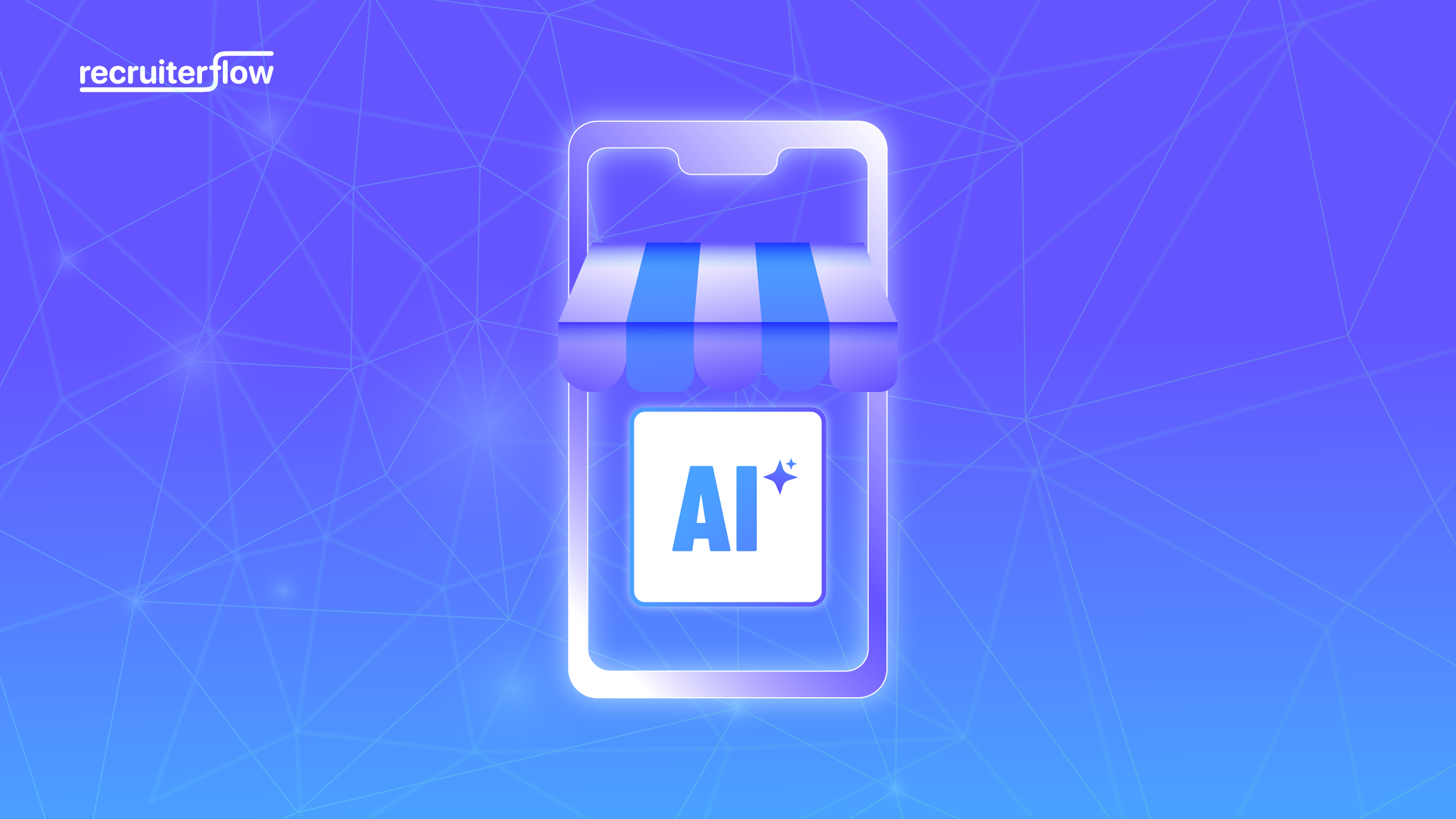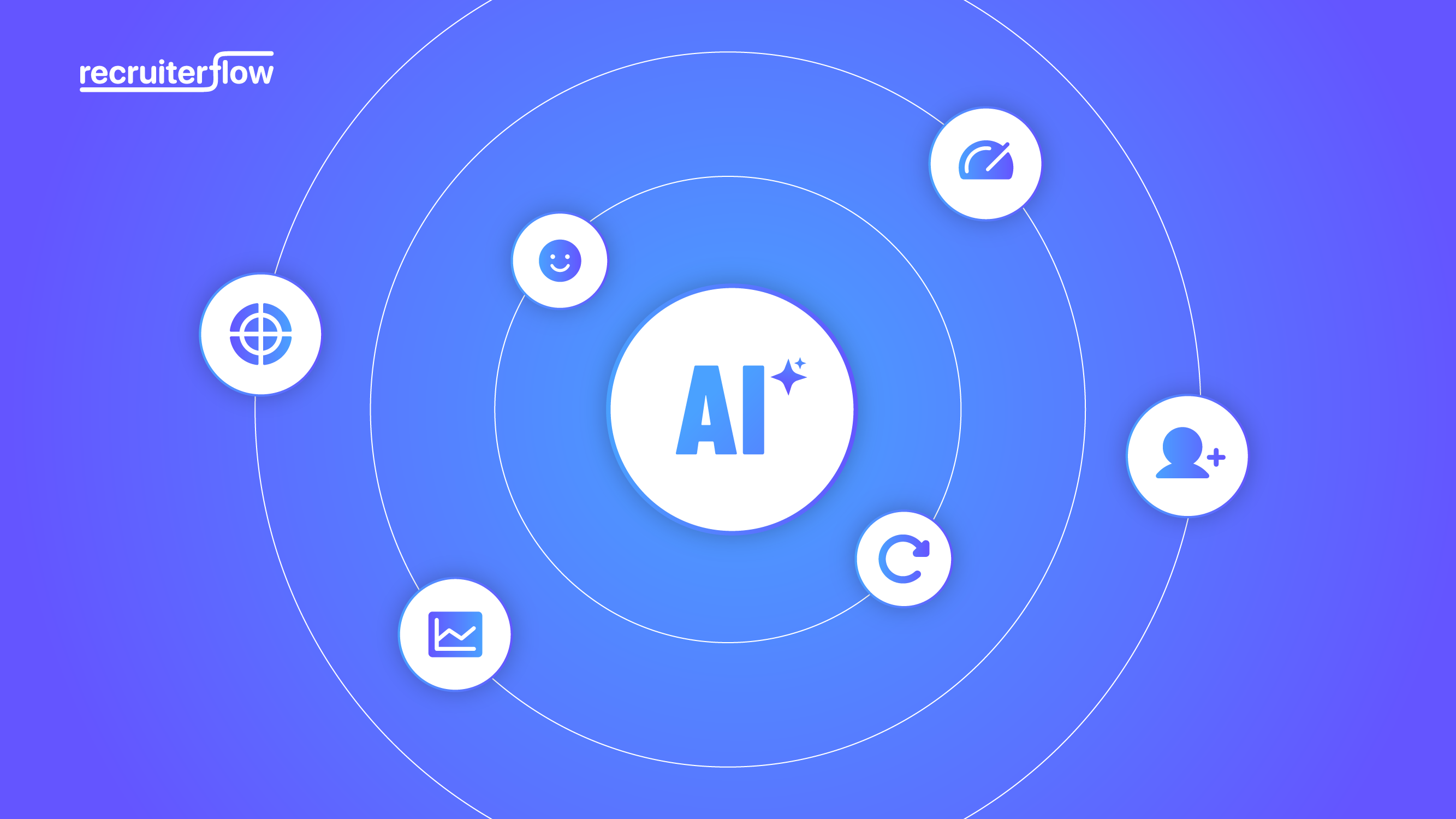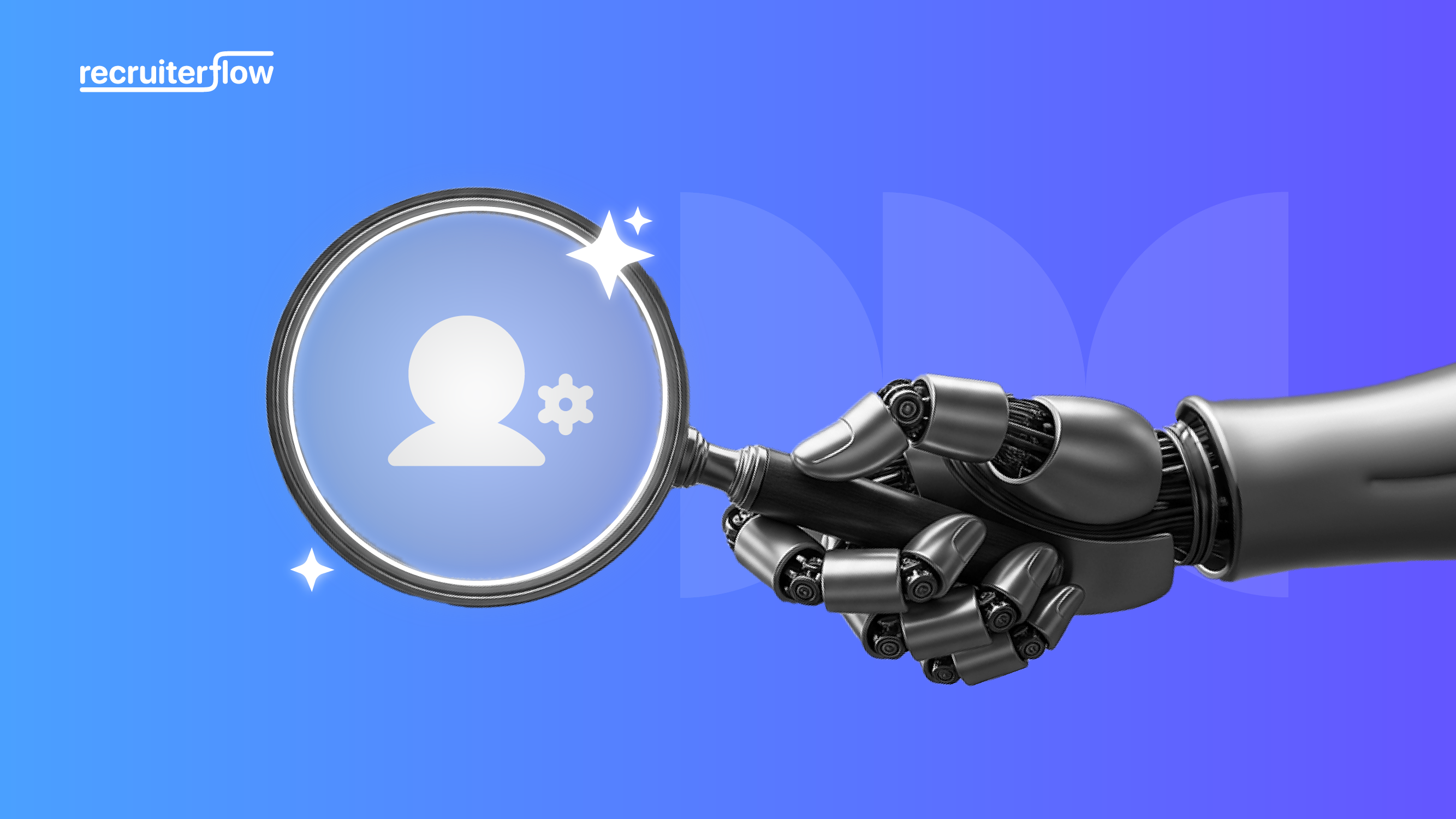
AI Recruitment Market: Size, Trends, and What’s Next for 2025

The paradox of the modern recruiter: deliver faster and better at cheaper; do more with less.
AI is often declared as the solution to meeting otherwise unachievable goals, but explanations are vague.
This article attempts to clear the fog around AI’s ability and role in recruitment operations. And no, AI re-imagines how human recruiters work by giving them speed, efficiency, analytics, and data depth at their fingertips.
In this blog, we will explore how the AI in recruitment market is growing, the trends shaping it, and what to expect in 2025.
AI in Recruitment—The Evolution
AI recruiting isn’t a new concept.With the recent developments, we are now entering the agent of recruitment driven by powerful AI agents. AI agents don’t just automate outreach or parse resumes fast; they act with real autonomy, learn from previous results, and adapt/respond in real time.
For instance, AI agents can:
- Monitor thousands of minutes of call transcripts
- Identify top candidates before you even search
- Work 24//7 with zero burnout
AI agents directly enable positive impact for agency owners and internal talent teams: more placements, less burnout, and higher client satisfaction per recruiter.
AI Recruitment Market Size: 2024 vs. 2025
As per our latest Recruitment Industry Analysis report and industry insights, we saw that in 2024: indicate that:
- 88% of recruiters expressed interest in AI
- Only 60% adopted it into workflows
Clearly, there is significant skepticism, low clarity, and encounters with untested solutions among recruiters.
The global talent crunch is also a part of this. The demand for faster, data-driven hiring is expanding, and more firms are looking into the massive advantages offered by AI agents. An increase in AI investments by firms like Korn Ferry, Randstad, and ManpowerGroup is pushing this new technology to automate sourcing, matching candidates, analyze call data, and drive predictive hiring.
By 2025, expect the AI recruitment market to noticeably grow, especially in scenarios mandating high-volume, low-complexity hiring. It automates most manual operations, leaving human recruiters to focus where their minds are truly needed.
Key Trends Reshaping the AI Recruitment Industry
From Automation to AI Agents
Traditional recruitment automation can take over some tasks like building email sequences and scheduling interviews. But the core concern remains: it is rigid, follows pre-set rules, doesn’t learn from outcomes and requires constant manual input.
AI agents, unlike automation workflows, don’t just follow rules. They adapt, decide, and improve. They understand context, take initiative and improve over time.
In their daily functioning, AI agents will act as highly competent teammates that show up every day, never sleep, and get smarter with each decision. Not to mention, they will also closely understand a team’s workflows, pipelines, and necessary insights — while also having superhuman powers.
For instance, AI Agents on Recruiterflow can:
- Auto-fill missing contact information
- Summarize and transcribe recruiter-candidate calls
- Detect changes in jobs and send alerts to relevant personnel
- Assign a score to candidates based on pre-set questions
Role Complexity Determines AI’s Role
AI adoption will be variable across and within industries. The usability of AI engines will differ based on the volume and complexity of daily operations and long-term goals.
| Role Type | Hiring Volume | Complexity | AI Agent Role |
| Call center, frontline | High | Low | Fully automated |
| Mid-level managers | Medium | Medium | AI-assisted |
| Executive search | Low | High | AI-augmented |
Internal research has shown that AI can automate up to 90% of Ops in high-volume hiring. However, it takes more of a supportive backseat when assisting with executive recruitment and senior-level searches that require a high degree of human trust, persuasion, and nuance.
Cut admin work, increase placements and let your recruiters focus on conversations, not spreadsheets. Discover how with Recruiterflow AI.
AI Agents Can Be a Real Solution to Burnout
Recruiters must chase KPIs and close deals in a market struggling with a lack of suitable talent. Burnout is almost inevitable from the ensuing pressure.
Our exhaustive analysis of industry data and recruiter interviews concluded that:
- 61% of recruiters report feeling burned out
- 45% cite repetitive, administrative work as the main cause
- 36% say stress and workload imbalance are the top reasons they quit
If a workforce’s well-being is compromised, it threatens business continuity. If recruiters burn out, agencies suffer pipeline delays, lower quality hires, missed follow-ups, eroding client trust, and loss of revenue.
The pressure is largely driven by the large volume of low-leverage work recruiters must do to complete each placement. For instance, recruiters have to manually:
- Update CRM fields after every interaction with a candidate
- Build follow-up sequences from scratch
- Summarize and score interviews
- Check if candidates have changed job titles or companies
- Track candidate engagement
None of these tasks need human intuition or intelligence, but recruiters must waste their energy and capacities on what is essentially grunt work — instead of focusing on strategic conversation and building relationships.
This is the space where AI agents can thrive. They don’t just automate workflows but also absorb entire swathes of routine tasks.
Once again, Recruiterflow can do the following:
- Convert calls and recordings into smart summaries with recommended next steps
- Fill in missing CRM data
- Build contextual outreach messages
- Alert recruiters if a candidate changes jobs or employers
- Score interviews based on predefined metrics
Instead of burying themselves in non-essential data entry, recruiters can engage, advise, and close — do their actual job.
If you’re a recruiter, chances are that your employer expects candidate shortlists within a week. 71% of them do so in the industry, after all. AI agents bring down the margin on inefficiency; it is always-on, always accurate, and helps recruiters scale without burnout.
Also Read: 21 Best AI Recruiting Tools in 2025
AI as a Strategic Asset, Not a Shortcut
AI in recruitment is a tool for cutting costs and accelerating tasks, but it is not a replacement for human recruiters. They can, however, give human recruiters a massive competitive advantage.
Think about it. Let’s say that a recruiter goes from manually managing 30 roles, juggling follow-ups, sourcing, and admin, to adopting an AI agent that can:
- Automatically push the most promising candidates to the top
- Update the CRM and alert them of pipeline gaps
- Score interviews in real time
- Write personalized emails and schedule interviews
The obvious outcome is higher productivity while maintaining consistency, strategic focus, and responsiveness.
This isn’t a theory. Major recruitment firms are already seeing unquestionable benefits from AI:
- Korn Ferry: a 50% increase in sourcing efficiency and a 66% reduction in time-to-interview after incorporating AI into their stack
- Hays: a 41% jump in candidate engagement after adopting AI; it matched candidates more intelligently and conducted outreach on schedule
- Randstad: built an AI-powered hiring app that enables candidates to apply and be placed within 24 hours. Over 500,000 users onboarded already
AI can become a strategic extension of the team and become the differentiator that helps recruiters stand out in a competitive, lightning-fast market.
What’s Next for AI in Recruitment: 2025 and Beyond
AI in recruitment started as a tactical upgrade, helping automate admin tasks and source candidates at scale. But it has proven itself to be capable of being a strategic operating system for talent acquisition.
In and after 2025, AI is poised to become a fixture in decision-making, predicting, and personalizing most stages of the hiring pipeline.
Here are projections of that phenomenon:
From Hindsight to Foresight
AI engines, if trained on the right data, can predict future actions and market trends. As an example:
- AI agents can highlight candidates who are likely to drop from or become unresponsive in the process based on behavior; for eg, slow response time, no-shows, tone of voice in interviews, etc.
- AI can analyze past behavior, negotiation, and market patterns to forecast the likelihood of candidates accepting or rejecting offers — with valid reasons.
This information can help recruiters intervene at the right time, adjust their engagement strategies, and prevent delays or declines.
Outreach with the Right Message at the Right Time on the Right Channel
We are way past any one-size-fits-all outreach models. AI can change the game by:
- Identifying the optimal outreach channels — LinkedIn vs. email vs. WhatsApp
- Recommending the best times to connect based on previous interaction history
- Managing the structure and tone of messages, based on what has worked for similar candidates in the past
- Analyze thousands of hours of past conversation and continuously learn what works and what doesn’t
No more wasting hours testing templates or chasing uninterested candidates on unresponsive channels. The new default is precision at scale.
Better Quality Benchmarking: Smarter Shortlists, Faster Hiring
Recruitment AI will go from matching and parsing resumes to evaluating candidates’ long-term fit for the employer in question. The AI engine studies data around interview performance, peer comparisons from past hires, candidate responsiveness, and candidate alignment with company culture.
The AI recruiting assistant can then build shortlists of candidates, with relevance scores attached to each one. This isn’t just about matching the right keywords in resumes; it’s about finding candidates most likely to qualify and actually succeed in the role.
The result? Lower time-to-hire, better quality-of-hire, and more consistent hiring pipelines.
What AI in Recruitment Still Can’t (and won’t ever) Do
AI is powerful, but it is no human — despite what the internet might tell you. It can think and analyze faster, but it has a ceiling — human nuance. For instance, it cannot:
- Present and interact in a boardroom during an executive search
- Communicate and build trust with a passive candidate in an IRL meeting
- Coach clients through their senior hires
- Mediate in negotiations with subtle cues
Recruiters take the high-stakes decisions, bring intuition, storytelling, and persuasion into the hiring ecosystem.
If you’re a recruiter or agency owner, the question to focus on is not “What can AI replace?”. It is “What can AI free us up to do better?”.
AI can crunch data, monitor signals, automate repeatable work, derive insights, and scale outreach. Humans can and will persuade, empathize, build relationships, and close deals.
Recruiters cannot be replaced, but re-armed with smarter tools to move faster, act with more context, and close more consistently.
AI does the legwork. Humans do the mental work.
From Artificial Intelligence to Augmented Intelligence: The Next Frontier for AI in Recruitment
AI in recruitment represents a structural shift in hiring. As the industry moves faster and becomes more fragmented, AI will step up to the plate. It will take over the repetitive and reactive tasks, and leave recruiters to connect, advise, influence, and onboard.
The numbers are in, and the trend is unmistakable. Recruitment firms must balance technology with human trust, insight with empathy, and speed without compromising a hint of quality.
Tools like Recruiterflow are building AI to support recruiters rather than sideline them. By transcribing calls, enriching data, flagging top candidates, and more, AI is already changing the way modern recruiting teams operate more intelligently, at scale, without giving in to burnout.
Recruitment is no longer just about efficiency. It’s about efficiency, clarity, and control. AI can deliver all of it.
Start small. Start smart. But most importantly, start now.
How Recruiterflow is leading the market
We’re not interested in peddling generic automaton tools and AI-related buzzwords. Recruiterflow delivers AI agents that go beyond automation and actually collaborate. The tool offers a new category of AI-powered assistance that is intelligent, deeply operational and purpose-built for recruitment agencies.
AI Agents Designed for Recruiters, by Recruiters
Recruiterflow works because of its AI-first architecture. In particular, we’re talking about an ever-expanding suite of AI agents that take over low-leverage work and leave recruiters with tasks that need their intelligence and cognitive abilities.
These AI agents adapt to each recruiter’s workflow, take autonomous actions, and improve via continuous learning. They start by executing tasks, and quickly grow to anticipate them.
Meet AIRA: Your AI Twin
AIRA (AI Recruiting Assistant) is Recruiterflow’s proprietary framework powering its AI agents. It is the baseline infrastructure that enables recruiters to:
- Stay focused on relationship-building and executive searches while AI handles grunt work
- Get more done faster without compromising on quality
- Make data-driven decisions without digging through a million dashboards
AI Agents Built in Recruiterflow
Each agent is built to manage specific pain points that act as blockers for most recruiters in their day-to-day recruitment ops:
| AI Agent | What it does |
| Job Change Alerts | – Notifies recruiters when a contact changes job or gets promoted to a decision maker.- Helps to ensure well-timed outreach before competition- Keeps the data updated and reliable |
| AI Note Taker | – Unlike other note takers, Recruiterflow’s AI note taker uses context from past conversations, emails, calls, meeting notes, resume, even job description to create summaries, draw insights, and suggest action items |
| Submission Agent | – Drafts, attaches & sends recruiter-branded candidate submittals in a click.- Reduces submission time by 70% (from 3-4 mins to under 10 secs)- Trained on 10,000+ submission emails- Uses context from past conversations, emails, meeting notes, resume, and job description to create highly contextual and personalised submission email |
| Research Agent | – Gathers intelligence on people and companies before any outreach to offer unique insights to close deals- Helps in creating contextual and personalised outreach that doesn’t feel robotic |
| CRM Update Agent | – Automatically updated fields on the CRM- Reduces manual admin work |
| Scorecard Agent | – Captures and structures interview feedback directly into your scorecards |
| Summarisation Agent | – Condenses full profiles into quick, digestible briefs |
| Email & Phone Lookup Agent | – Automatically finds and adds verified phone & work email into the profile |
| Outreach Agent | – Auto builds & personalizes multi-channel sequences to reach the right candidates and clients with hyper-personalized messages |
| Task Agent | – Extracts action items from your meetings and calls and auto assigns follow-up tasks to the right teammate instantly |
See AI in Action?
That’s a whole lot of words, but what do AI agents look like in a modern hiring pipeline? Will it really help recruiters get more done in less time?
Let us show you. How about a demo?

FAQs
What is the AI recruitment market size in 2025?
Exact global valuations vary by source, but the AI recruitment market is projected to grow notably in 2025, thanks to increased market requirements for efficiency, automation, and scale.
Internal insights from Recruiterflow’s research and industry trend analysis reveal that 88% of recruiters expressed interest in adopting AI in 2024, with adoption expected to surpass 60% in 2025.
The increase is especially visible in sectors that prioritize high-volume hiring, such as retail, customer service, and logistics — as AI agents can automate up to 90% of operations.
Major recruitment firms are investing in AI infrastructure, adopting the technology as an operational core.
How is AI changing the recruitment industry?
AI is changing the recruitment industry at both strategic and operational levels. It is transforming how recruiters work, hire, and scale their work.
- AI agents can handle admin-heavy tasks like call handling, data entry, follow-ups, and profile enrichment
- Inclusion of AI reduces time-to-interview, increases quality of hires, and helps place candidates much faster (sometimes even within 24 hours)
- AI agents can highlight candidate insights, predict drop-offs, and evaluate candidate quality based on cumulative data instead of just job titles and skills
Who are the major players in the AI recruitment market?
As with any evolving market, key players have emerged in the AI recruitment domain, across multiple segments. Three major stakeholders, serving distinct audiences with AI-driven features, are worth mentioning:
- Recruiterflow: For Recruitment Agencies
Recruitment serves recruitment agencies and staffing firms, by design. Its use of AI agents stands out, with engines designed to simplify tasks in every recruiter’s day-to-day workflow. Integration is direct and quick, with AI agents taking over unproductive functions like:
- Sending personalized follow-up emails
- Automatically updating contact and CRM data
- Summarizing recruiter-candidate calls
- Alerting recruiters when candidates change jobs
Recruiterflow prioritizes boosting agency productivity, preventing burnout, and maximizing revenue per recruiter. It helps scale smarter and faster.
- HireVue: For Internal Talent Teams
HireVue assists with AI-driven hiring for corporate HR and in-house recruitment teams. Its AI-assisted video interview platform is especially popular, as it offers:
- Structured interviewing
- Automated candidate assessments
- Predictive analytics to conclude on job-fit and performance
Often used by large enterprises in finance, healthcare, and technology, HireVue accelerates volume-based hiring while also standardizing processes.
- Hays: For Global Enterprise Recruitment
Hays is a publicly listed global recruitment firm with AI integrated into its core operations. Its internal platforms can take on advanced functions like:
- Matching candidates to roles at scale
- Improving recruiter productivity with intelligent filtering
- Ramping up candidate engagement via data-driven outreach
Hays is an example of a traditional staffing giant evolving and adapting to demands for AI-powered capabilities that push faster, more precise hiring.
Recruitment




Abhishek Sharma